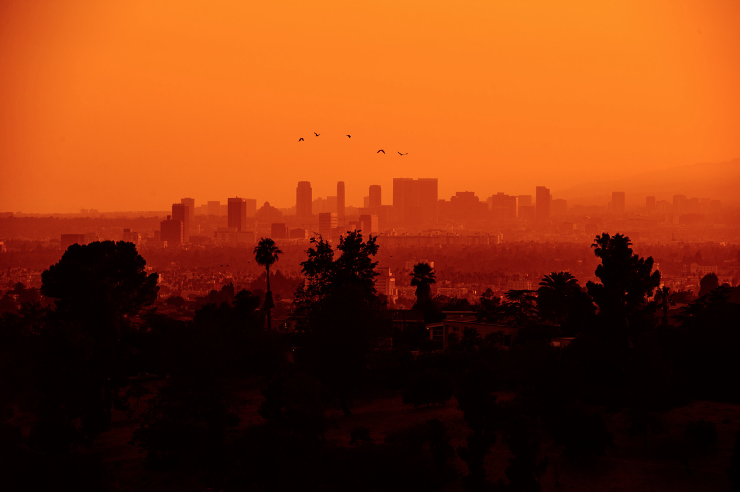CommentsCOMMENTARY - Imagine what would happen if all power, phones, and the internet go down, if roads become impassable.
In the same way that the current pandemic, a medical crisis, led to food insecurity, housing challenges and civil unrest, one emergency can often cascade into others or deepen existing problems.
Over the last decade or so, for a lot of communities, disasters have become commonplace conditions – tornados overwhelming middle America, hurricanes devastating the South, poverty eviscerating lives in Appalachia, fires ravaging northern and central California, the earthquake shattering Ridgecrest, and homelessness exploding here in Los Angeles.
During the past two years, emergency departments have had to respond to all of these on top of the pandemic and growing outbreaks of civil unrest directed at government regulation and police excess.
All this has a cascading impact on more mundane aspects of our everyday lives, magnifying food insecurity and affordable housing, complicating transportation and increasing frustration, leading into a vortex of growing unrest and violence.
Arizona recently held a statewide drill to practice how it would respond to a migration of 400,000 people in case of a catastrophic California earthquake.
Los Angeles, meanwhile, is caught up in the growing disaster posed by homelessness – that the gilded home of Hollywood is more and more the posterchild of third-world poverty in a first-world city.
How ironic that our current mayor may soon be departing for India with its own teeming millions of street people!
The City needs to devote greater effort and assets to minimizing the impacts of disasters, and planning for recovery in advance to reduce damages, cost and recovery time in the event of future crises.
It needs to ramp up its planning skills and engage in more relationship building with
It needs to focus on all of its departments and bureaus working together, instead of as individual fiefdoms, and build a tapestry of working relationships and institutional knowledge with local businesses and County and State agencies that can be deployed to address the whole community working seamlessly together.
And each of these should encourage cross-collaboration, building each other up by sharing skills and resources to ensure that Angelenos as well as surrounding residents benefit from the best our governments have to offer.
Our elected officials must start investing our tax dollars in protecting our future, not on putting lipstick on the policy-of-the-day to secure re-election.
And at every level, people need to focus on building up rather than tearing down.
Egos should be satisfied by sharing in everyone’s successes, not in trying to hog the glory and, by doing so, allow lives and quality of life to fall through the cracks.
The City needs to devote more efforts toward mitigating crises before they happen or when the next disaster occurs, it could precipitate a maelstrom of problems, a thunderous cascade of events from which Los Angeles will have great difficulty resurrecting itself.
Or hopefully, by then, the City would have set the stage for a swift and unified response, allowing it to bounce back stronger and more vibrant than before.
But to get there, it is up to all Angelenos to call on their Councilmembers (remember they work for us, not the City), and to take individual action, positive action, to ensure that they and their loved ones are safe the next time a disaster falls.
(Liz Amsden is an activist from Northeast Los Angeles with opinions on much of what goes on in our lives. She has written extensively on the City's budget and services as well as her many other interests and passions. In her real life she works on budgets for film and television where fiction can rarely be as strange as the truth of living in today's world.)






